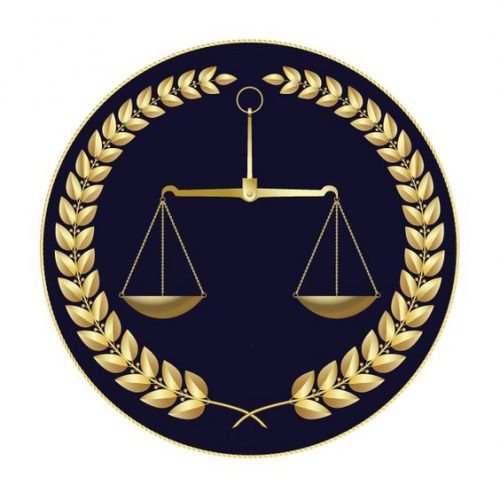Best Corporate Governance Lawyers in Bolivia
Share your needs with us, get contacted by law firms.
Free. Takes 2 min.
Or refine your search by selecting a city:
List of the best lawyers in Bolivia
About Corporate Governance Law in Bolivia
Corporate governance refers to the systems, rules, and processes by which companies are directed and controlled. In Bolivia, corporate governance plays a crucial role in ensuring that companies operate efficiently, ethically, and in compliance with the law. The legal framework aims to balance the interests of shareholders, management, customers, suppliers, financiers, government, and the community. A strong corporate governance structure is vital for sustainable business growth and maintaining investor confidence in both public and private companies.
Why You May Need a Lawyer
There are several scenarios in which individuals and companies may require legal assistance regarding corporate governance in Bolivia. You may need the help of a lawyer if you are forming a company and want to ensure compliance with local regulations, or if you want to draft or amend internal policies like by-laws or shareholder agreements. Legal help is often required in cases of corporate restructuring, mergers and acquisitions, auditing company practices, or dealing with conflicts between shareholders or directors. Lawyers can also assist in ensuring that your company adheres to new regulations or best practices and help navigate government investigations or disputes involving breaches of fiduciary duties.
Local Laws Overview
The backbone of corporate governance law in Bolivia is established by the Bolivian Commercial Code (Código de Comercio), along with related decrees and resolutions from regulatory bodies such as the Autoridad de Supervisión del Sistema Financiero (ASFI) and Bolsa Boliviana de Valores (BBV). Key aspects include:
- The mandatory creation of a board of directors for certain company types, such as Sociedades Anónimas (S.A.)
- Requirements for shareholder meetings, including proper notice, quorum, voting rights, and documentation
- Duties and responsibilities of directors, including acting in good faith and with due diligence
- Rules governing conflicts of interest, related-party transactions, and transparency
- Mandatory disclosures, financial reporting, and auditing for regulated entities
- Requirements for minority shareholder protection and rights
- Specific governance rules for companies listed on the BBV, including codes of conduct, committees, and disclosure policies
Non-compliance can lead to administrative sanctions, fines, or even dissolution of the company in serious cases.
Frequently Asked Questions
What is corporate governance and why is it important in Bolivia?
Corporate governance refers to the structures and processes for the direction and control of companies. It is important in Bolivia to ensure ethical conduct, transparency, and accountability in business management, attracting investment and fostering trust among stakeholders.
Which laws regulate corporate governance in Bolivia?
The Bolivian Commercial Code is the primary legislation, complemented by specific regulations from entities like the ASFI and the BBV for certain sectors or publicly traded companies.
What types of companies need to comply with corporate governance standards?
All companies must follow basic governance principles, but higher standards apply to Sociedades Anónimas, companies listed on the Bolivian Stock Exchange, and those in regulated sectors such as banking and insurance.
Are there legal requirements for boards of directors in Bolivia?
Yes, Sociedades Anónimas are required to have a board of directors with defined roles, responsibilities, and obligations towards the company and shareholders.
What rights do minority shareholders have?
Minority shareholders have rights to receive information, attend and vote in meetings, challenge wrongful decisions, and protect their interests against abuse by majority shareholders.
How should conflicts of interest be handled?
Directors must disclose any conflicts of interest and, in many cases, refrain from voting or participating in decisions where they have a personal interest to ensure objectivity and fairness.
What penalties exist for non-compliance with corporate governance laws?
Penalties can include fines, administrative actions, suspension of company powers, or judicial dissolution of the company in severe situations.
What is the role of external audits in corporate governance?
External audits provide independent verification of a company's financial statements, helping ensure accuracy, transparency, and adherence to legal and ethical standards.
How do I update my company's internal governance policies?
You should consult with a legal professional to draft or amend policies like by-laws, codes of conduct, or shareholder agreements, and ensure that changes are registered with the appropriate authorities.
Where can I report irregularities or breaches of corporate governance?
You can report issues to regulatory bodies such as the ASFI for financial companies, the BBV for listed companies, or directly to the Dirección General de Sociedades Comerciales for general corporate matters.
Additional Resources
If you need more information or assistance, the following resources may be helpful:
- Autoridad de Supervisión del Sistema Financiero (ASFI) - Regulates and supervises financial institutions
- Bolsa Boliviana de Valores (BBV) - Oversees listed companies and securities markets
- Ministerio de Economía y Finanzas Públicas - Provides guidance on commercial and corporate regulations
- Dirección General de Sociedades Comerciales - Handles company registrations and corporate filings
- Professional legal associations and chambers of commerce - Can provide referrals and advice
Next Steps
If you require legal assistance with corporate governance in Bolivia, consider taking the following steps:
- Identify the specific issue or area where you need help, such as forming a company, resolving a shareholder dispute, or updating compliance measures
- Gather relevant documents, such as your company’s by-laws, meeting minutes, or shareholder agreements
- Consult with an experienced Bolivian corporate lawyer who understands local laws and industry practices
- Follow the lawyer’s recommendations to resolve your issue, implement good governance practices, and stay up to date with any legal developments that may affect your business
- Consider ongoing legal counsel or training for your directors and staff to ensure ongoing compliance with evolving corporate governance standards
Navigating the landscape of corporate governance in Bolivia can be complex, but with the right guidance and resources, you can ensure your company operates legally, ethically, and successfully.
Lawzana helps you find the best lawyers and law firms in Bolivia through a curated and pre-screened list of qualified legal professionals. Our platform offers rankings and detailed profiles of attorneys and law firms, allowing you to compare based on practice areas, including Corporate Governance, experience, and client feedback.
Each profile includes a description of the firm's areas of practice, client reviews, team members and partners, year of establishment, spoken languages, office locations, contact information, social media presence, and any published articles or resources. Most firms on our platform speak English and are experienced in both local and international legal matters.
Get a quote from top-rated law firms in Bolivia — quickly, securely, and without unnecessary hassle.
Disclaimer:
The information provided on this page is for general informational purposes only and does not constitute legal advice. While we strive to ensure the accuracy and relevance of the content, legal information may change over time, and interpretations of the law can vary. You should always consult with a qualified legal professional for advice specific to your situation.
We disclaim all liability for actions taken or not taken based on the content of this page. If you believe any information is incorrect or outdated, please contact us, and we will review and update it where appropriate.
Browse corporate governance law firms by city in Bolivia
Refine your search by selecting a city.

















